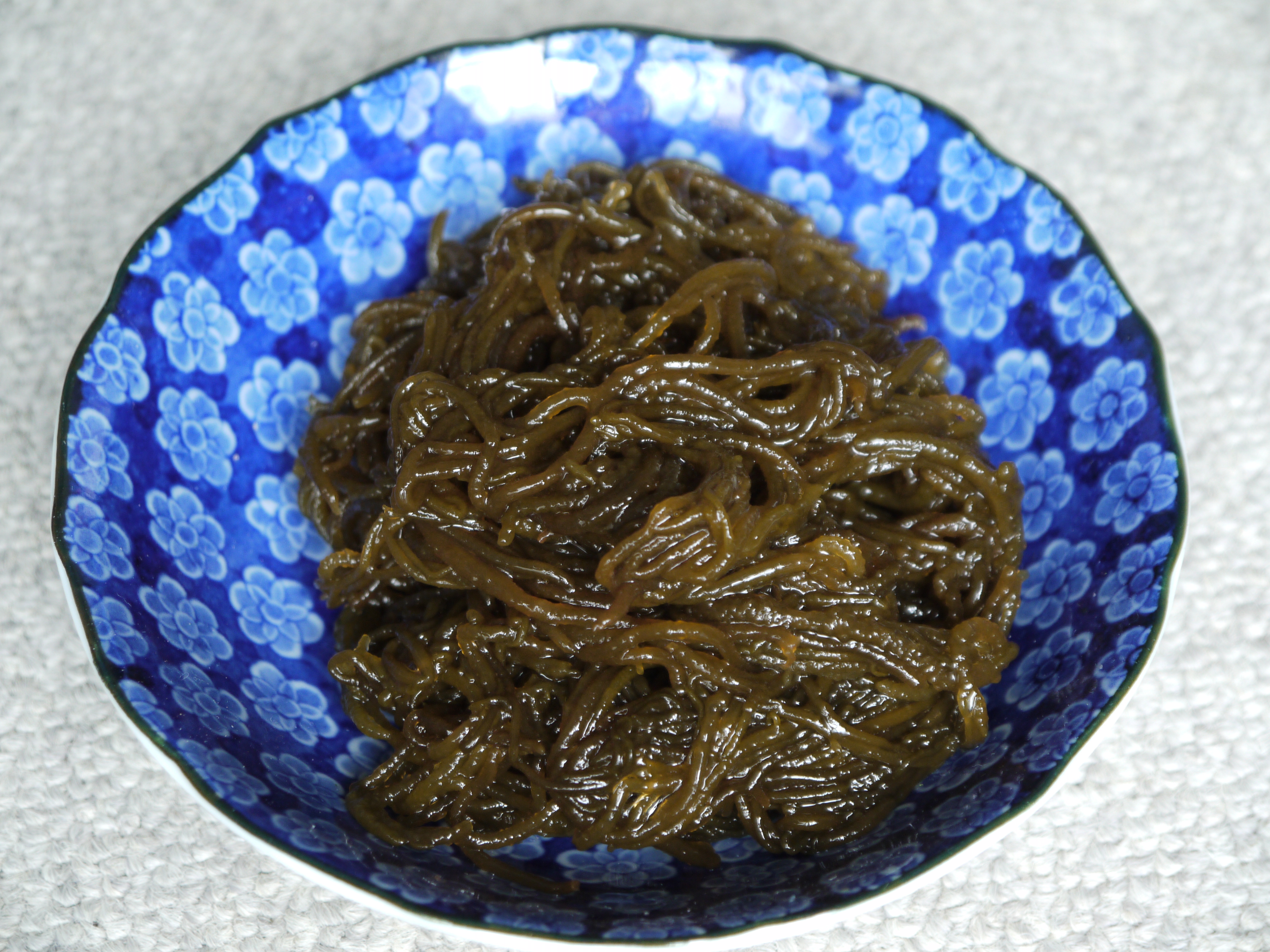Cladosiphon Okamuranus on:
[Wikipedia]
[Google]
[Amazon]
 is a type of
is a type of
Japan for Sustainability
Kanehide is the largest mozuku processing factory in Okinawa
Edible seaweeds Chordariaceae ja:モズク {{Phaeophyceae-stub
 is a type of
is a type of edible seaweed
Edible seaweed, or sea vegetables, are seaweeds that can be eaten and used for culinary purposes. They typically contain high amounts of fiber. They may belong to one of several groups of multicellular algae: the red algae, green algae, and brown ...
in the genus ''Cladosiphon
''Cladosiphon'' is a genus of brown algae belonging to the family Chordariaceae.
The genus has cosmopolitan distribution.
Species:
*'' Cladosiphon cylindricus''
*'' Cladosiphon erythraeus''
*'' Cladosiphon irregularis''
*'' Cladosiphon lub ...
'', naturally found in Okinawa
is a prefecture of Japan. Okinawa Prefecture is the southernmost and westernmost prefecture of Japan, has a population of 1,457,162 (as of 2 February 2020) and a geographic area of 2,281 km2 (880 sq mi).
Naha is the capital and largest city ...
, Japan. Most mozuku is now farmed by locals, and sold to processing factories. The main use of mozuku is as food, and as a source of one type of sulfate
The sulfate or sulphate ion is a polyatomic anion with the empirical formula . Salts, acid derivatives, and peroxides of sulfate are widely used in industry. Sulfates occur widely in everyday life. Sulfates are salts of sulfuric acid and many ...
d polysaccharide called Fucoidan
Fucoidan is a long chain sulfated polysaccharide found in various species of brown algae. Commercially available fucoidan is commonly extracted from the seaweed species '' Fucus vesiculosus'', ''Cladosiphon okamuranus'', ''Laminaria japonica'' and ...
, which is used as a cancer treatment
Cancer can be treated by surgery, chemotherapy, radiation therapy, hormonal therapy, targeted therapy (including immunotherapy such as monoclonal antibody therapy) and synthetic lethality, most commonly as a series of separate treatments (e.g. ...
aid and health supplement
A dietary supplement is a manufactured product intended to supplement one's diet by taking a pill, capsule, tablet, powder, or liquid. A supplement can provide nutrients either extracted from food sources or that are synthetic in order ...
.
Mozuku biology
A group of researchers from Okinawa Institute of Science and Technology Graduate University conducting DNA research decoded S-strain genome for ''Cladosiphon okamuranus'' and found that its size was roughly 140 Mbp and smaller relative to other brown alga. They also made a rough estimate on the number of genes ''C. okamuranus'' has and found 13,640 genes.References
External links
Japan for Sustainability
Kanehide is the largest mozuku processing factory in Okinawa
Edible seaweeds Chordariaceae ja:モズク {{Phaeophyceae-stub